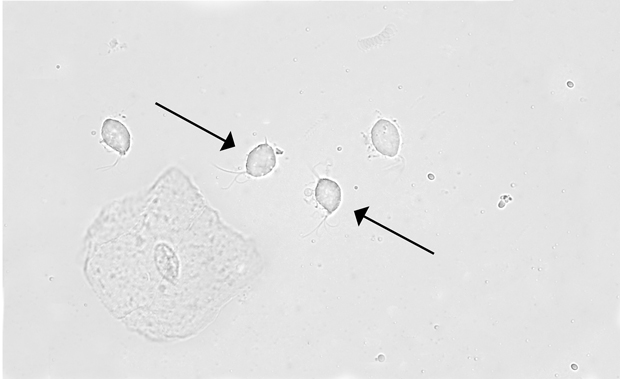Bariatric surgery device linked to deaths
This column reviews details on recent recalls, warnings, and approvals.
Recalls, warnings, and safety alerts
A safety alert about the potential risks of liquid-filled intragastric balloon systems used to treat obesity. In a letter to clinicians, the FDA noted five reports of unanticipated deaths that occurred from 2016 to the present in patients treated with these systems. Four reports involve the Orbera Intragastric Balloon System, and one involves the ReShape Integrated Dual Balloon System. In three reports, patients died as soon as one to three days after balloon placement, and all deaths occurred within the first month. The root cause of the deaths is unknown, although the systems carry potential risks of acute pancreatitis and spontaneous over-inflation.
A recall of all liquid products manufactured by PharmaTech and distributed by Leader Brand, Major Pharmaceuticals, and Rugby Laboratories due to possible product contamination. The FDA has received reports of several adverse events linked to Burkholderia cepacia infections, which may be linked to oral docusate sodium solutions (Diocto Syrup or Diocto Liquid) produced by the manufacturer.

A safety alert that serious adverse events have been reported in patients administered eye injections of compounded triamcinolone and moxifloxacin. Between April 5 and June 1, at least 43 patients who received the injections at the end of cataract procedures at an ambulatory surgery center in Texas had adverse events from the drug. Patients developed such symptoms as vision impairment, light sensitivity, glare, halos, pain, loss of balance, headaches, and nausea. Some patients saw improvements in their symptoms, but others continued to experience reductions in visual acuity.
A safety alert about immediate hypersensitivity reactions associated with the use of injectable compounded curcumin emulsion products. Reports indicate that two patients who received curcumin infusions compounded with polyethylene glycol 40 castor oil had reactions, with one event resulting in patient death. The manufacturer has recalled all products containing the oil.
A safety alert not to use drug products intended to be sterile produced by Vital Rx (doing business as Atlantic Pharmacy and Compounding) due to lack of sterility assurance. A recent inspection found insanitary conditions, such as poor sterile production practices. The company has not yet initiated a recall, despite recommendations from the FDA.
A recall of all lots of unexpired sterile drug products by Bella Pharmaceuticals due to a lack of sterility assurance. Affected products were packaged in syringes, vials, and eye droppers and were distributed from April 17 to Aug. 10.
A recall of one lot of pravastatin sodium tablets USP (40 mg in 30-count bottles) due to mislabeling. The products are labeled as containing pravastatin but actually contain bupropion hydrochloride extended-release tablets (300 mg).
A recall of 13 lots of lorazepam oral concentrate USP (2 mg/mL) due to misprinted dosing droppers. Some affected droppers were printed with dose markings in reverse number order, markings that were shifted, or no markings at all. The manufacturer is supplying affected pharmacies with replacement droppers.
Approvals
Glecaprevir and pibrentasvir (Mavyret) to treat adults with chronic hepatitis C virus (HCV) genotypes 1 through 6 with mild or no cirrhosis. The drug is also approved to treat patients with HCV genotype 1 infections who have been treated with a regimen containing either an NS5A inhibitor or an NS3/4A protease inhibitor, but not both. The combination drug is the first eight-week treatment for this patient population, and standard treatment length was previously 12 or more weeks. In trials of about 2,300 adults, patients who received the drug for eight, 12, or 16 weeks had cure rates ranging from 92% to 100%. The most common adverse reactions were headache, fatigue, and nausea. The drug is contraindicated in patients taking atazanavir and rifampin, and reports of hepatitis B virus (HBV) reactivation have been reported in co-infected patients who did not receive HBV antiviral therapy in addition to HCV treatment.
Enasidenib (Idhifa) to treat adults with relapsed or refractory acute myeloid leukemia who have a specific genetic mutation. The isocitrate dehydrogenase-2 (IDH2) inhibitor is approved to be used with a companion diagnostic to detect specific mutations in the IDH2 gene in patients with acute myeloid leukemia. In a single-arm trial of 199 patients who received the orphan drug for at least six months, 19% experienced complete remission for a median of 8.2 months, and 4% experienced complete remission with partial hematologic recovery for a median of 9.6 months. Common side effects include nausea, vomiting, diarrhea, increased levels of bilirubin, and decreased appetite. A boxed warning adds that a potentially fatal adverse reaction, differentiation syndrome, may occur and should be treated with corticosteroids at first suspicion of symptoms.
A new indication for ibrutinib (Imbruvica) to treat adults with chronic graft-versus-host disease after one or more treatments has failed. The orphan drug, previously approved to treat certain types of cancer, is the first FDA-approved therapy to treat chronic graft-versus-host disease. In a single-arm trial of 42 patients, 67% of patients had improvements in their symptoms (e.g., mouth ulcers, skin rashes). In 48% of patients, the improvement of symptoms lasted for five months or longer. Common side effects included fatigue, bruising, diarrhea, thrombocytopenia, muscle spasms, stomatitis, nausea, hemorrhage, anemia, and pneumonia. Serious side effects include hemorrhage, infections, cytopenias, atrial fibrillation, hypertension, second primary malignancies, and tumor lysis syndrome.
Inotuzumab ozogamicin (Besponsa) to treat adults with relapsed or refractory B-cell precursor acute lymphoblastic leukemia (ALL). The safety and efficacy of the orphan drug were studied in a randomized trial of patients with relapsed or refractory B-cell ALL who had received one or two prior treatments. Of 218 patients, about 36% of those who received the drug experienced complete remission for a median of eight months, and about 17% of those who received alternative chemotherapy experienced complete remission for a median of five months. Common side effects include thrombocytopenia, neutropenia, infection, anemia, fatigue, hemorrhage, fever, nausea, headache, liver damage, abdominal pain, and hyperbilirubinemia. A boxed warning cautions about hepatotoxicity, including hepatic sinusoidal obstruction syndrome. Physicians should pause treatment or reduce the dose if hepatotoxicity occurs. Other serious side effects include myelosuppression, infusion-related reactions, and QT-interval prolongation.
First-time generic approvals
10% calcium chloride injection USP (100 mg/mL single-dose vial) to treat hypocalcemia in patients whose conditions require a prompt increase in plasma calcium levels. (Brand name: 10% calcium chloride injection)
Isoproterenol hydrochloride injection USP (0.2 mg/mL and 1 mg/5 mL single-dose vials) to treat patients with mild or transient episodes of heart block that do not require electric shock or pacemaker therapy, serious episodes of heart block and Adams-Stokes attacks, congestive heart failure, cardiogenic shock, and other serious issues. (Brand name: Isuprel)
Minoxidil topical aerosol 5% (for women) to regrow hair on the top of the scalp. (Brand name: Women's Rogaine)
Testosterone topical gel 1.62% (40.5 mg/2.6-g packet) for replacement therapy in men for congenital or acquired conditions associated with a deficiency or absence of endogenous testosterone, including primary hypogonadism and hypogonadotropic hypogonadism. (Brand name: AndroGel)
Note: The FDA states that drugs are not always commercially available immediately after approval.




